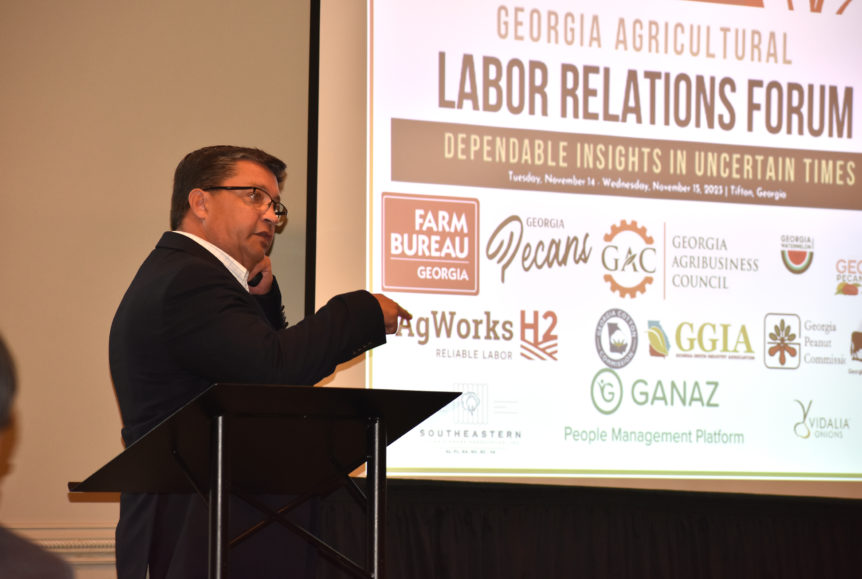
By Clint Thompson
An increase in the Adverse Effect Wage Rate (AEWR) means Georgia specialty crop producers will have had their labor expenses increase by 21% the past two years. Combine that with the 28% increase from 2011 to 2020 and Georgia farmers have experienced an almost 50% increase in the past 12 years.
That is a tough reality for producers who are not seeing that financial return at the market, says Chris Butts, executive vice president of the Georgia Fruit and Vegetable Growers Association (GFVGA).
“Wages have gone up 50% over that time. Input costs have gone up considerably over that time. What has not gone up is the return farmers are getting for those crops,” said Butts on Monday at the Georgia Farm Bureau meeting in Jekyll Island. “We see that through the shrinking portion of the food dollar that’s returned to the farmer. Costs are going up across the board, and farmers are getting less and less of that money.”
Reduced Acreage in the Future?
Butts said what is likely to happen is a reduction in acreage growers are willing to invest in. If they can’t afford as much labor to perform agricultural work, they’ll have to reduce how much they’re willing to employ. That will lead to not as much acres planted.
“It’s really the only recourse you have. Labor is the largest expense for all of our specialty crop growers. If you’ve got to curb experiences, the only thing you can do is hire fewer workers, which means you’re putting less acreage into production,” Butts said. “You’re going to have less produce that you’re growing.”
He emphasized that this dangerous scenario places increased dependence on other countries for basic fruit and vegetables.
“I think we are nearing a precipice. We still see increased numbers of H-2A workers coming into Georgia year after year. The market and the growers can only stand so much, and it’s such a disparity in what it cost to grow that food here and what it cost to grow in our competitor countries now that you’re going to start to see growers that are unable to continue to compete,” Butts said.
“The market has already demonstrated there’s demand for that produce, so the only thing that’s going to happen is it’s going to go to one of these countries other than the U.S. and increase our dependence on other countries for our food supply.”










